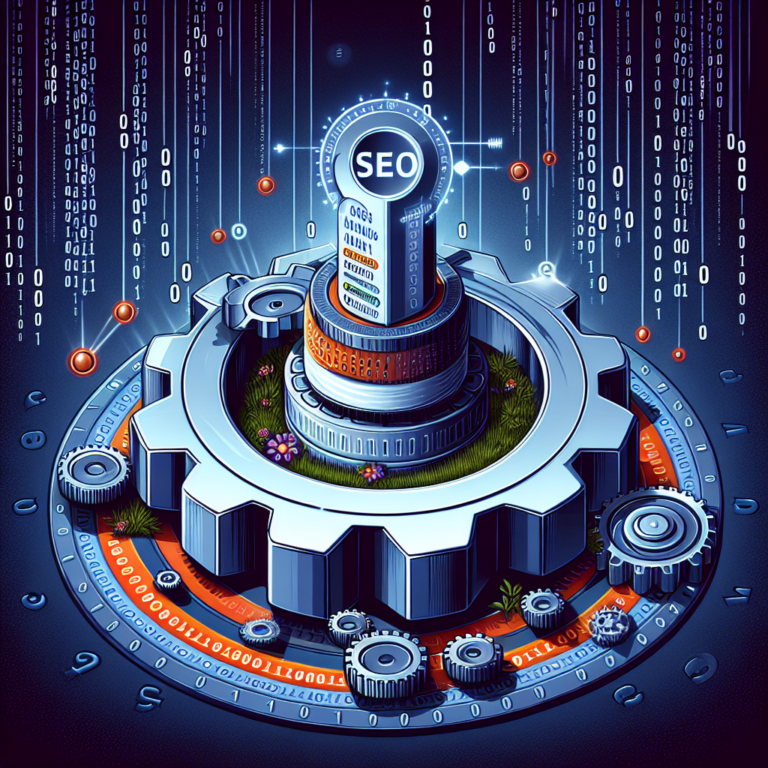
Are you looking for an effective way to enhance your marketing campaigns? Look no further! In this article, you will uncover the potential of Artificial Intelligence (AI) and how it can revolutionize your marketing strategies. By utilizing AI, you will be able to analyze vast amounts of data, make data-driven decisions, and personalize your marketing efforts to reach your target audience more efficiently. Get ready to discover how you can leverage AI to optimize your marketing campaigns and achieve unprecedented success in the digital landscape.
Benefits of Using AI in Marketing Campaigns
Enhanced Targeting
One of the key benefits of using AI in marketing campaigns is the ability to enhance targeting. By leveraging AI technology, marketers can analyze vast amounts of data and identify the most relevant audience for their products or services. This allows for more precise targeting and ensures that marketing messages are reaching the right people at the right time. With AI, you can identify ideal customer profiles (ICPs) and use predictive analytics to tailor your marketing efforts to their specific needs and preferences. This enhanced targeting can result in higher conversion rates and a greater return on investment for marketing campaigns.
Improved Personalization
Another major advantage of incorporating AI into marketing campaigns is improved personalization. AI allows marketers to create dynamic and customized content that resonates with individual consumers. By analyzing data about consumer behavior, preferences, and demographics, AI-powered systems can generate personalized recommendations and messages that are more likely to capture the attention of your target audience. Additionally, AI enables the implementation of chatbots and virtual assistants that can provide personalized assistance and support to customers, further enhancing the overall customer experience.
Optimized Ad Spending
AI can also help optimize ad spending by automating and refining the ad placement process. Through the use of AI-driven advertising platforms, marketers can benefit from real-time bidding and optimization, ensuring that their ads are displayed to the most relevant audience in the most cost-effective manner. AI algorithms can analyze data on consumer behavior and preferences to determine the most effective channels and platforms for advertising, maximizing the impact of ad spending. By optimizing ad spending with AI, marketers can achieve better results while minimizing wasted resources.
Steps to Implement AI in Marketing Campaigns
Define Campaign Goals
Before implementing AI in marketing campaigns, it is essential to define clear campaign goals. This involves understanding what you want to achieve through your marketing efforts and setting specific, measurable, achievable, relevant, and time-bound (SMART) goals. By clearly defining your campaign goals, you can establish the metrics against which your AI-powered marketing campaign will be evaluated, such as increased sales, improved brand awareness, or higher conversion rates.
Gather and Analyze Data
To effectively utilize AI in marketing campaigns, it is crucial to gather and analyze relevant data. This includes customer data, market research, and data from various marketing channels. AI algorithms can analyze this data to identify patterns, trends, and insights that can inform marketing strategies. By capitalizing on the power of AI to analyze large volumes of data, marketers can gain valuable insights into consumer behavior, preferences, and market dynamics, enabling them to make data-driven decisions and develop more effective marketing campaigns.
Select an AI Platform
Once you have defined your campaign goals and gathered the necessary data, it is essential to select an appropriate AI platform for your marketing campaigns. There are various AI platforms available, each with its capabilities and features. When choosing an AI platform, consider factors such as ease of use, data compatibility, scalability, reliability, and cost-effectiveness. It is crucial to select an AI platform that aligns with your specific marketing needs and integrates seamlessly with your existing marketing technology stack.
Data Collection and Analysis
Utilizing Customer Relationship Management (CRM) Platform
A Customer Relationship Management (CRM) platform is a valuable tool for collecting and organizing customer data. By integrating AI into your CRM platform, you can gain deeper insights into customer behavior and preferences. AI-powered CRM systems can analyze customer data, such as purchase history, engagement patterns, and demographics, to identify valuable trends and patterns. This information can then be used to develop more targeted marketing campaigns and personalized customer experiences.
Leveraging Social Media Data
Social media platforms are gold mines of data, and AI can help marketers harness this data to fuel their marketing campaigns. AI algorithms can analyze social media data, such as posts, comments, and likes, to gain insights into consumer sentiment, preferences, and trends. By leveraging social media data with AI, marketers can identify opportunities, monitor brand perception, and develop targeted marketing strategies that resonate with their target audience.

Segmenting Data
Segmentation is a crucial aspect of marketing campaigns, and AI can streamline and optimize the segmentation process. AI algorithms can analyze customer data to group customers into segments based on similarities in behavior, demographics, or preferences. By segmenting data with AI, marketers can tailor their marketing messages to specific customer segments, ensuring that their campaigns are more relevant and effective. This targeted approach can lead to higher engagement and conversion rates, ultimately driving better results for marketing campaigns.
Enhanced Targeting
Identifying Ideal Customer Profiles (ICPs)
Identifying ideal customer profiles (ICPs) is a fundamental step in enhancing targeting with AI. An ICP is a representation of the characteristics and traits of your ideal customer. By leveraging AI technology, marketers can analyze customer data and identify the common characteristics, preferences, and behaviors of their most valuable customers. This information can then be used to create highly targeted marketing campaigns that resonate with the identified ICPs, increasing the likelihood of attracting and converting customers with similar profiles.
Utilizing AI for Predictive Analytics
AI-powered predictive analytics can revolutionize targeting in marketing campaigns. By analyzing vast amounts of data, AI algorithms can identify patterns and trends that help predict future consumer behavior. With predictive analytics, marketers can forecast customer needs, preferences, and purchasing behavior, allowing for more targeted and effective marketing campaigns. By using AI for predictive analytics, marketers can gain a competitive advantage by anticipating customer actions and delivering personalized marketing messages at the right time.
Behavioral and Demographic Targeting
AI can enhance targeting in marketing campaigns by utilizing both behavioral and demographic data. Behavioral targeting involves analyzing customer actions and online behavior to understand their preferences and deliver relevant ads or content. Demographic targeting, on the other hand, focuses on segmenting customers based on demographic characteristics such as age, gender, location, or income. By combining both behavioral and demographic targeting with AI, marketers can create highly targeted marketing campaigns that resonate with their audience, resulting in improved engagement and conversion rates.
Improved Personalization
Dynamic Content Creation
AI enables marketers to create dynamic and personalized content at scale. By leveraging AI-powered content generation tools, marketers can automatically generate content that is tailored to the individual preferences and needs of each customer. This includes personalized product recommendations, customized email campaigns, or dynamically generated website content. By employing dynamic content creation with AI, marketers can deliver highly relevant and engaging content to their audience, driving better customer experiences and increasing conversion rates.
Implementing Chatbots and Virtual Assistants
Chatbots and virtual assistants powered by AI technology are becoming increasingly popular in marketing campaigns. These AI-powered chatbots can interact with customers in real-time, providing personalized assistance, answering inquiries, and guiding customers through their purchasing journey. By implementing chatbots and virtual assistants, marketers can enhance the customer experience by delivering instant and personalized support, ultimately driving customer satisfaction and loyalty.
Email Personalization
Email marketing remains a powerful tool in marketing campaigns, and AI can take email personalization to the next level. AI algorithms can analyze customer data and behavior to understand individual preferences and interests. This information can be leveraged to send highly targeted and personalized email campaigns to individual customers. By personalizing email content with AI, marketers can deliver messages that are more relevant and engaging, increasing the chances of customer engagement and conversion.
Optimized Ad Spending
AI-driven Advertising Platforms
AI-driven advertising platforms can significantly optimize ad spending by automating and refining the ad placement process. These platforms utilize AI algorithms to analyze consumer behavior, preferences, and market trends to determine the most effective channels and platforms for advertising. By leveraging AI-driven advertising platforms, marketers can ensure that their ads are displayed to the most relevant audience at the right time, maximizing the impact of their ad spending.

Real-time Bidding and Optimization
Real-time bidding is a feature of AI-driven advertising platforms that enables marketers to bid on ad placements in real-time. By dynamically bidding on ad space based on real-time data and insights, marketers can optimize their ad spending and ensure that their ads are reaching the desired audience at the most cost-effective price. Real-time optimization allows marketers to adjust their bidding strategies on the fly, ensuring that ad budgets are allocated efficiently and generating the best possible results for their marketing campaigns.
Cross-Channel Ad Spending
AI can help marketers optimize ad spending by enabling cross-channel ad spending strategies. With AI technology, marketers can analyze data from various marketing channels, such as social media platforms, search engines, and display networks. This enables them to identify the most effective channels and allocate their ad spending accordingly. By leveraging AI for cross-channel ad spending, marketers can ensure that their ads are reaching the right audience across multiple channels, maximizing their marketing reach and impact.
Automation and Optimization
Automated Email Campaigns
AI-powered automation can revolutionize email marketing campaigns by streamlining and optimizing the process. With AI-driven automation tools, marketers can set up triggered email campaigns based on customer behavior or specific events. These automated campaigns can include personalized product recommendations, abandoned cart reminders, or post-purchase follow-ups. By automating email campaigns, marketers can save time and resources while delivering timely and relevant messages to their customers, ultimately driving higher engagement and conversion rates.
AI-driven Content Recommendations
AI-powered recommendation engines can significantly enhance content marketing campaigns. These engines analyze customer data, such as browsing history, purchase behavior, or content preferences, to generate personalized content recommendations. By recommending relevant content to customers, marketers can increase engagement and drive repeat visits to their websites or other marketing channels. AI-driven content recommendations enable marketers to deliver a personalized and engaging experience to their audience, increasing the likelihood of conversion and brand loyalty.
Optimizing Landing Pages
AI can assist marketers in optimizing landing pages for better conversion rates. By analyzing customer behavior and engagement data, AI algorithms can identify areas for improvement on landing pages. This includes optimizing elements such as layout, design, color scheme, call-to-action placement, or copywriting. By leveraging AI for landing page optimization, marketers can create a seamless and optimized user experience that encourages visitors to take the desired action, ultimately leading to higher conversion rates and better campaign performance.
AI-powered Recommendation Engines
Using Collaborative Filtering
Collaborative filtering is a popular technique used in AI-powered recommendation engines. It works by analyzing patterns and similarities in customer behavior to make personalized recommendations. Collaborative filtering algorithms look for patterns among customers who have similar preferences or behaviors and use these patterns to predict what other items or content a customer might be interested in. By utilizing collaborative filtering, marketers can deliver highly targeted recommendations to individual customers, increasing the likelihood of engagement and conversion.
Implementing Content-based Filtering
Content-based filtering is another technique employed by AI-powered recommendation engines. This approach involves analyzing the characteristics or attributes of items or content and recommending similar items to customers based on their preferences. For example, if a customer shows interest in a specific product, content-based filtering algorithms can recommend similar products based on shared attributes or characteristics. By implementing content-based filtering, marketers can provide personalized recommendations that align with individual customer preferences, fostering engagement and driving conversions.
Hybrid Recommendation Engines
Hybrid recommendation engines combine different techniques, such as collaborative filtering and content-based filtering, to deliver more accurate and relevant recommendations to customers. By taking advantage of both techniques, hybrid recommendation engines can overcome the limitations of each approach and provide a more comprehensive and personalized recommendation experience. Marketers can leverage hybrid recommendation engines to deliver highly targeted and diverse recommendations, offering customers a wider range of options based on their preferences and behaviors.
Predictive Analytics and Forecasting
Forecasting Customer Behavior
AI-powered predictive analytics enables marketers to forecast customer behavior with greater accuracy. By analyzing historical data, such as past purchases, browsing behavior, or engagement patterns, AI algorithms can identify trends and patterns that help predict future customer actions. This predictive capability allows marketers to anticipate customer needs, preferences, and purchasing behavior, enabling them to tailor their marketing efforts accordingly. By forecasting customer behavior, marketers can proactively address customer needs and deliver personalized experiences, ultimately driving higher engagement and sales.
Identifying Sales Prospects
AI can assist marketers in identifying potential sales prospects by analyzing customer data and engagement metrics. AI algorithms can identify customers who exhibit behaviors or characteristics that indicate a high likelihood of making a purchase. By identifying sales prospects with AI, marketers can prioritize their efforts and resources on high-value leads, increasing the efficiency and effectiveness of their sales and marketing activities. This targeted approach can result in higher conversion rates and improved sales performance.
Optimizing Conversion Rates
AI-powered predictive analytics can help marketers optimize conversion rates by identifying factors that contribute to successful conversions. By analyzing data on customer interactions, purchase behavior, and campaign performance, AI algorithms can pinpoint the key drivers of conversions. This information can then be used to optimize marketing campaigns, landing pages, or product offerings to maximize conversion rates. By leveraging AI for optimizing conversion rates, marketers can make data-driven decisions that lead to higher conversion rates and improved overall campaign performance.
Challenges and Ethical Considerations
Data Privacy and Security
While AI offers numerous benefits in marketing campaigns, it also presents challenges and ethical considerations, such as data privacy and security. AI relies on vast amounts of data, including personal and sensitive customer information. It is essential for marketers to ensure that data privacy regulations are followed, and customer data is securely stored and protected. Moreover, marketers need to be transparent about how data is collected, used, and stored, and obtain proper consent from customers. By prioritizing data privacy and security, marketers can build trust with customers and maintain a positive brand image.
Algorithmic Bias
Algorithmic bias is another ethical consideration when implementing AI in marketing campaigns. AI algorithms are only as unbiased as the data they are trained on. If the training data contains biases or reflects societal biases, the AI system may perpetuate these biases in its recommendations or targeting. Marketers should be vigilant in monitoring AI systems for any biases and take steps to mitigate them. This includes diversifying the training data, conducting regular audits of AI algorithms, and involving human oversight to ensure fairness and avoid discrimination in marketing campaigns.
Maintaining Human Oversight
While AI can automate and optimize various aspects of marketing campaigns, maintaining human oversight is crucial. Humans provide critical contextual understanding, creativity, and ethical judgment that AI systems lack. Marketers should always review and validate AI-generated recommendations, ensure that AI systems are aligned with business goals, and intervene when necessary. By maintaining human oversight, marketers can ensure that AI is used responsibly and ethically, preserving the human touch in marketing campaigns.
In conclusion, integrating AI into marketing campaigns offers numerous benefits, including enhanced targeting, improved personalization, and optimized ad spending. By following the steps of defining campaign goals, gathering and analyzing data, and selecting an appropriate AI platform, marketers can harness the power of AI to achieve better results and drive higher engagement and conversion rates. Data collection and analysis, enhanced targeting, improved personalization, and optimized ad spending are key areas where AI can make a significant impact. Additionally, automation and optimization, AI-powered recommendation engines, predictive analytics and forecasting, as well as addressing challenges and ethical considerations, are crucial elements to consider when leveraging AI in marketing campaigns. With careful planning, strategic implementation, and a human-centric approach, AI can be an invaluable tool in optimizing marketing campaigns and delivering personalized experiences to customers.






